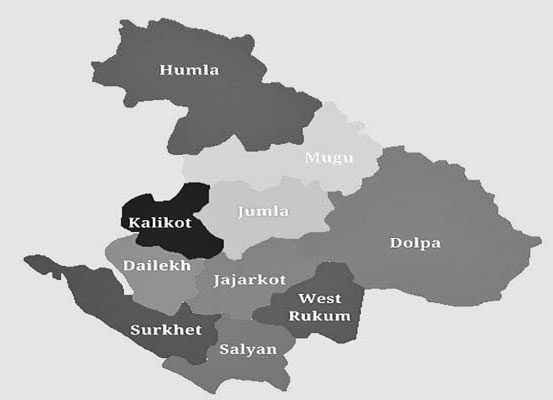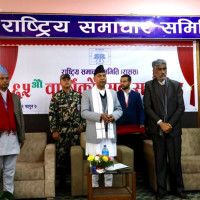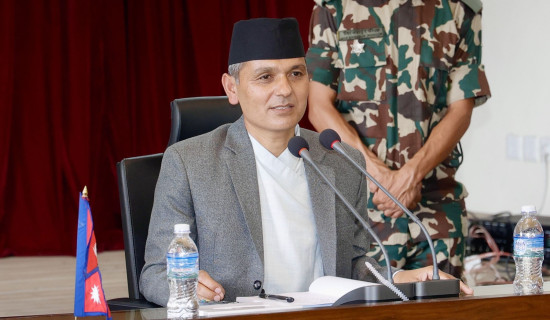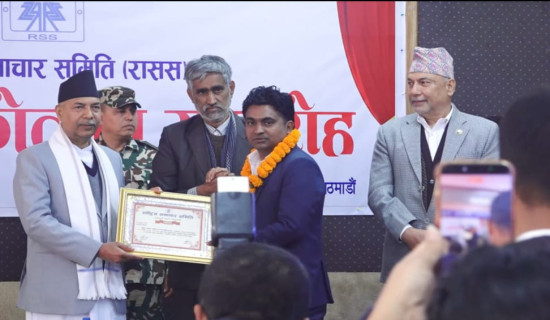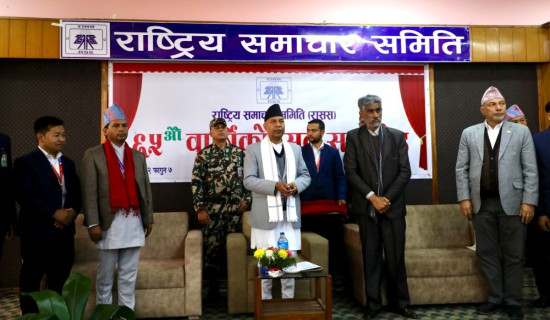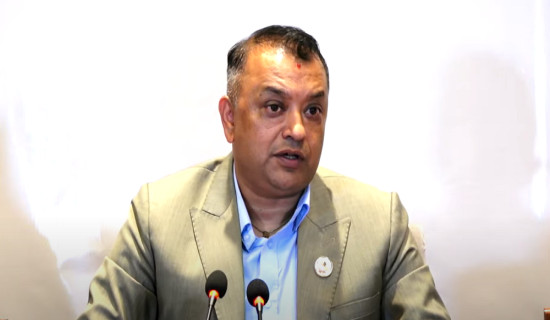- Friday, 20 February 2026
Pesticide use rises in Karnali despite ‘organic province’ pledge
By Nabin Subedi
Surkhet, Oct. 26: Seven years after the Karnali Province government declared it would become Nepal’s first ‘organic province’, the region is witnessing increasing use of chemical fertilisers and pesticides, raising doubts over the ambitious pledge made on February 18, 2018.
Karnali’s natural landscape, traditional farming systems and fertile soil had offered hope that the province could lead the country in organic production. However, the growing import and recommendation of chemical pesticides, even by government agencies, has undermined that goal.
Farmers say the government announced an organic future without providing alternatives such as bio-fertilisers, organic seeds and biopesticides. Research, market management and support programmes of the provincial government also remain weak.
“I grow organic mushrooms, but unchecked Indian mushrooms flood the market and kill our opportunity,” said Om Prakash Sharma of Birendranagar.
Another farmer, Rudra Adhikari said equal pricing of organic and chemical produce had discouraged farmers from going organic. The province has launched several initiatives since the announcement, including an Organic Agriculture Mission Directive (2076) and an organic conference and even decided to set up bio-fertiliser plants in Surkhet and Jajarkot.
The provincial and federal governments allocated Rs 1.97 billion for the organic campaign in fiscal year 2022/23. Yet farmers complain that the results have been negligible. Pesticide-testing laboratories built in Kapurbot of Salyan and Harre of Surkhet, at a cost of millions, remain unused despite having buildings and equipment.
According to the National Sample Census of Agriculture 2021/22, around 302,000 households in Karnali depend on farming, but only 30 per cent are food-secure, leaving nearly 90,000 families struggling with food shortages.
Maize is the province’s primary crop, followed by wheat and rice, while most households still sell vegetables, fruits and herbs to buy rice. At a recent public hearing organised by the Social Development Committee, stakeholders said the province must now move from slogan to implementation.
Bakhat Bahadur Khadka, spokesperson for the Ministry of Land Management, Agriculture and Cooperatives said a land-use policy and geo-sensitive masterplan are nearing completion and that implementation would accelerate once an Organic Research and Development Centre is established.
Agricultural economist Chitra Bahadur Rokaya said organic farming is essential for long-term public health and environmental protection, urging training and incentives for farmers to adopt biological inputs.

